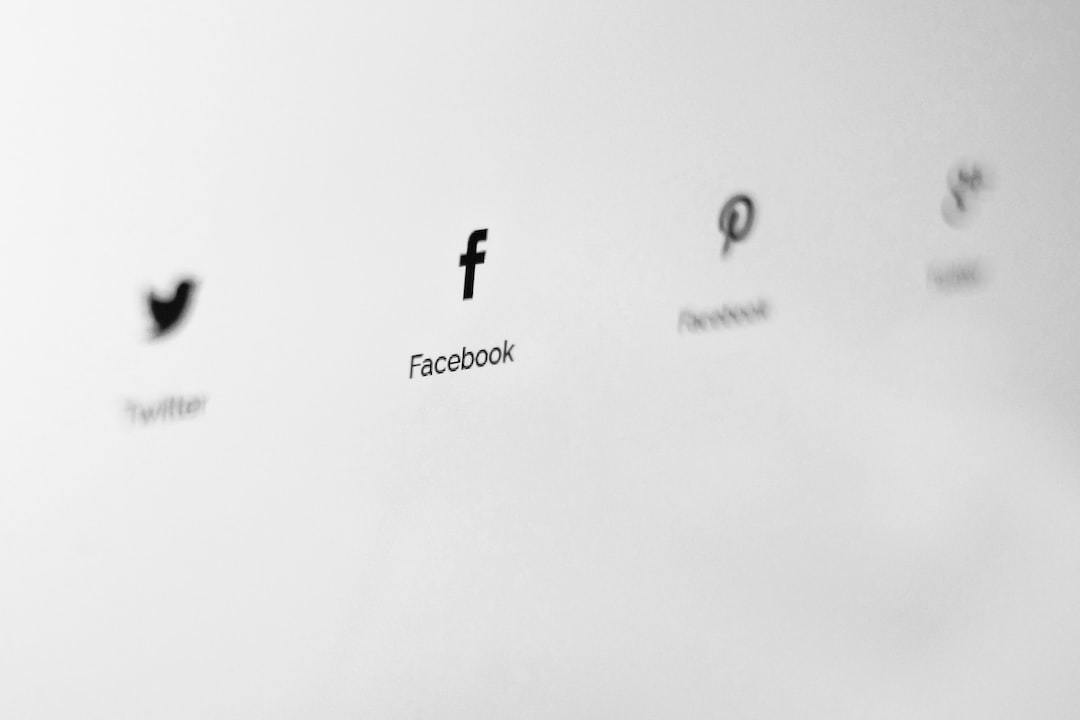As we stand on the precipice of 2024, paid advertising will undergo yet another significant transformation! The white-label PPC realm, often the silent force doing the heavy lifting behind successful campaigns, is subsequently gearing up for a paradigm shift.
In the world of digital marketing, where every click counts, understanding the upcoming trends is both an advantage and a necessity. In this article, we delve into the realm of white-label PPC and unravel the intricacies of the trends that will shape the digital advertising landscape in 2023. Let’s get started!
Table Of Contents:
- 2. Privacy Regulations
- 3. eCommerce Integration
- 4. Attribution Modeling
- 4. Interactive Ads
- Conclusion
What is White Label PPC?
PPC, or Pay-Per-Click, is a powerful tool that drives targeted traffic to websites. White-label PPC comes into the picture as a saving grace for agencies seeking to master PPC as a service without taking on the technical, time-consuming tasks that come with it.
White-label PPC is a smart partnership that involves having a skilled marketing team of PPC experts working on PPC management in the background while operating under your agency’s brand. The magic lies in accessing the expertise of a specialized agency without needing to train an in-house team. With white-label PPC, you can access numerous essential services – from keyword research to campaign management – all under your brand.
Many agencies opt for outsourcing; it’s efficient, cost-effective, and lets you offer more services without additional costs. In a nutshell, the option to outsource PPC is a viable move enabling you to focus on your strengths while pros handle the nitty-gritty of paid advertising.

The Benefits of White Label PPC Management Services for Your Clients
The clients reap massive rewards when you opt for white-label PPC services.
- Tailored Campaigns: Your agency will have access to seasoned experts who specialize in crafting personalized ad strategies based on individual business goals.
- Faster Turnaround Times: No waiting around as internal teams figure out how best to approach an ad campaign – a dedicated team of PPC professionals will have it done in a snap.
- Improved ROI: The goal of any marketing strategy is to increase return on investment. With white-label PPC agency services, clients get expert services that lead to better campaign performance and improved returns.
Essentially, white-label PPC is a tool your digital agency can use to deliver effective ad campaigns to your client base.
Now that you have a solid grasp on white-label PPC management and how it can benefit your agency and clients, let’s dive into the trends you want to focus on implementing into marketing strategies in 2024.
1. Audience-Centric Targeting
Audience-centric targeting, the practice of tailoring PPC campaigns to reach specific groups of people based on their unique interests and behaviors, is first in line to be a trend in 2024. By focusing more on the target audience than the product or service itself, your agency can deliver messages that are tailored to appeal to potential buyers of those specific offerings.
How does this work? As an example, imagine your client owning an online fitness store. Instead of putting generic ads about their products on blast, audience-centric targeting allows you to create specialized content for different customer segments.
They could be yoga enthusiasts who will see ads featuring yoga mats and equipment or weightlifters receiving targeted offers for protein powders or heavy-duty gym gear. Audience-centric targeting encompasses perfectly meeting the customer’s needs wherever they fall in their unique buying journey.
Making Audience-Centric Targeting Work For You
Making the most out of this strategy requires comprehensive knowledge about your client’s target market – from demographics like age or location down to behavioral patterns such as browsing habits or past purchases.
Thankfully, with the help of advanced technology, such as AI-driven digital marketing and user behavior insights from Google Analytics, targeted campaigns are becoming easier to create. Tools like Google Analytics offer insights into user behavior, helping businesses create targeted campaigns. Plus, with the rise of AI in digital marketing this process becomes more manageable and efficient.
Audience-centric targeting isn’t just a trend but an industry standard. By embracing this approach early on, your agency can stay ahead of the curve and reap its benefits for your clients – increased customer engagement, higher conversion rates, and sustainable growth.
2. Privacy Regulations
Another significant trend that will shape paid ads in 2024 is privacy regulations. As consumers become more conscious about their data, agencies must prioritize privacy in their clients’ PPC marketing strategies.
Recent studies show that 47% of adults across 12 countries have stopped relationships with companies over data privacy policies. Therefore, respecting the end user’s data privacy while remaining transparent regarding the business’s privacy policy is absolutely vital for solidifying customer trust and loyalty.
The Benefits of Prioritizing Privacy
Prioritizing privacy has several benefits for digital agencies and their clients:
- Improved Customer Trust: When companies respect user data, they build strong relationships with customers who feel safe sharing personal information.
- Better Brand Reputation: Businesses that adhere strictly to privacy laws demonstrate responsibility and integrity, enhancing brand reputation.
- Increase in Conversion Rates: With increased trust levels come higher conversion rates as users feel safer engaging with your client’s online platforms.
The Adverse Effects of Ignoring Privacy Regulations
Ignoring or failing to prioritize these regulations can lead to severe consequences, including hefty fines, loss of customer trust, damage to the brand’s reputation, and potential lawsuits. Just recently, Facebook faced up to $5 billion in penalties when found guilty of violating an agreement on privacy regulations.
As a digital marketing agency, it is your responsibility to guide clients through these changes and help them navigate the complexities of privacy laws. By incorporating these trends into their marketing strategies, you can ensure that they stay ahead of industry disruption while providing value to their customers.
3. eCommerce Integration
eCommerce integration and white-label PPC go hand-in-hand. By linking your client’s online store with their paid advertising efforts, you’re setting up a streamlined process that not only saves time but also maximizes ROI.
As the digital marketplace becomes increasingly saturated, agencies must wise up regarding how they use their resources. This new way of thinking entails leveraging technology to optimize campaigns based on real-time data collected from multiple sources – including your client’s e-commerce platform.
Imagine this – you’re running a campaign for a client selling eco-friendly kitchen products. Your ads are driving traffic, but you notice one particular product isn’t performing well despite being featured prominently in the ad copy. With eCommerce integration, you can quickly identify this issue by cross-referencing ad performance with sales data from your client’s online store.
The Benefits of Ecommerce Integration in Future Campaigns
eCommerce integration lets us act swiftly when things aren’t going according to plan. With this in motion, you don’t have to wait until month-end reports or rely solely on analytics software; you’ll have immediate access to relevant insights right within your client’s eCommerce platforms.
This direct line between stores and marketing efforts makes it easier than ever before to measure success and make necessary adjustments along the way, ensuring future campaigns perform even better than before.
4. Attribution Modeling
As the digital landscape grows, so does the need to understand how our marketing efforts impact our client’s business growth. Enter attribution modeling – a key player in PPC strategies for 2024.
Simply put, think of attribution modeling as a GPS guiding you to make informed decisions on your journey toward achieving higher ROI for your clients. It helps identify which touchpoints or ads contributed to a conversion and subsequently deserve credit.
Decoding the performance of the ads with precision is equally (if not more) as important as creating eye-catching ads, especially in 2024! That’s where attribution models make a difference – they don’t merely tell us that an ad worked; they explain why it worked.
The Power of Attribution Models
No two customer journeys are alike. With multi-channel marketing becoming more common, agencies often struggle to understand which campaigns led customers down the conversion funnel effectively.
With various ad campaigns running simultaneously across different platforms, determining what led users toward conversion can quickly become complex and adversely affect ad spend.
Types of Attribution Models
Last-Click: The last-click model attributes all credit for conversions back to one source – the last click.
First-Click: This model is an ideal choice when raising awareness is your focus.
Linear: This method shares the credit equally among all touchpoints. If the journey matters more than the destination, this is a go-to choice.
We recommend testing different models to determine the option most suitable for your client’s objectives and requirements.
Key Takeaway:
Attribution modeling is your marketing GPS, guiding you to make savvy decisions and boost ROI for your clients. It uncovers which ads or touchpoints spark conversions – focusing not just on whether an ad works but why. There are different types of models like Last-Click, First-Click, and Linear – choose based on your client’s campaign goals. The future of PPC relies heavily on a clear understanding of these models because they’re crucial for pinpointing what really drives customer actions.
4. Interactive Ads
You’re scrolling through social media when you come across an ad that doesn’t just ask for a click—it invites you to play a game, answer a poll, or customize the product on display. By 2024, interactive ads are set to take the scope of paid ads and white-label PPC campaigns to new heights.
Interactive ads engage users beyond passive viewing. They incorporate elements like quizzes, sliders, calculators, or even games into their design, sparking user engagement and boosting recall – two critical factors in any successful paid advertising strategy.
By engaging audiences with compelling content and personalized experiences right within the ad itself; they drive not only clicks but also meaningful conversations with brands. A study by Outgrow showed that 77% of marketers agree that interactive content results in repeat visitors and multiple exposures.
Conclusion
The future of paid ads represents a significant opportunity for digital agencies to enhance campaign effectiveness and deliver superior value to clients. From interactive ads to attribution models, it’s vital that your agency pays close attention to these PPC trends in 2024 to experience higher conversions coming to fruition for your clients!
White-label PPC services stand out as a valuable resource during these shifts, providing sustainable support and helping agencies scale while enhancing client satisfaction. By leveraging these digital marketing services, your agency could tap into advanced technologies without having to build them from scratch or possess extensive knowledge about their workings.
If you’re ready to try outsourcing risk-free, book a free strategy call with our in-house white-label PPC agency team. We’re a certified Google partner and would love to meet you and discover your unique goals. By booking a call with us, unlock your $1000 voucher to try our services risk-free!
Ready to start scaling with wholesale PPC management and marketing services? Schedule your free call today.




